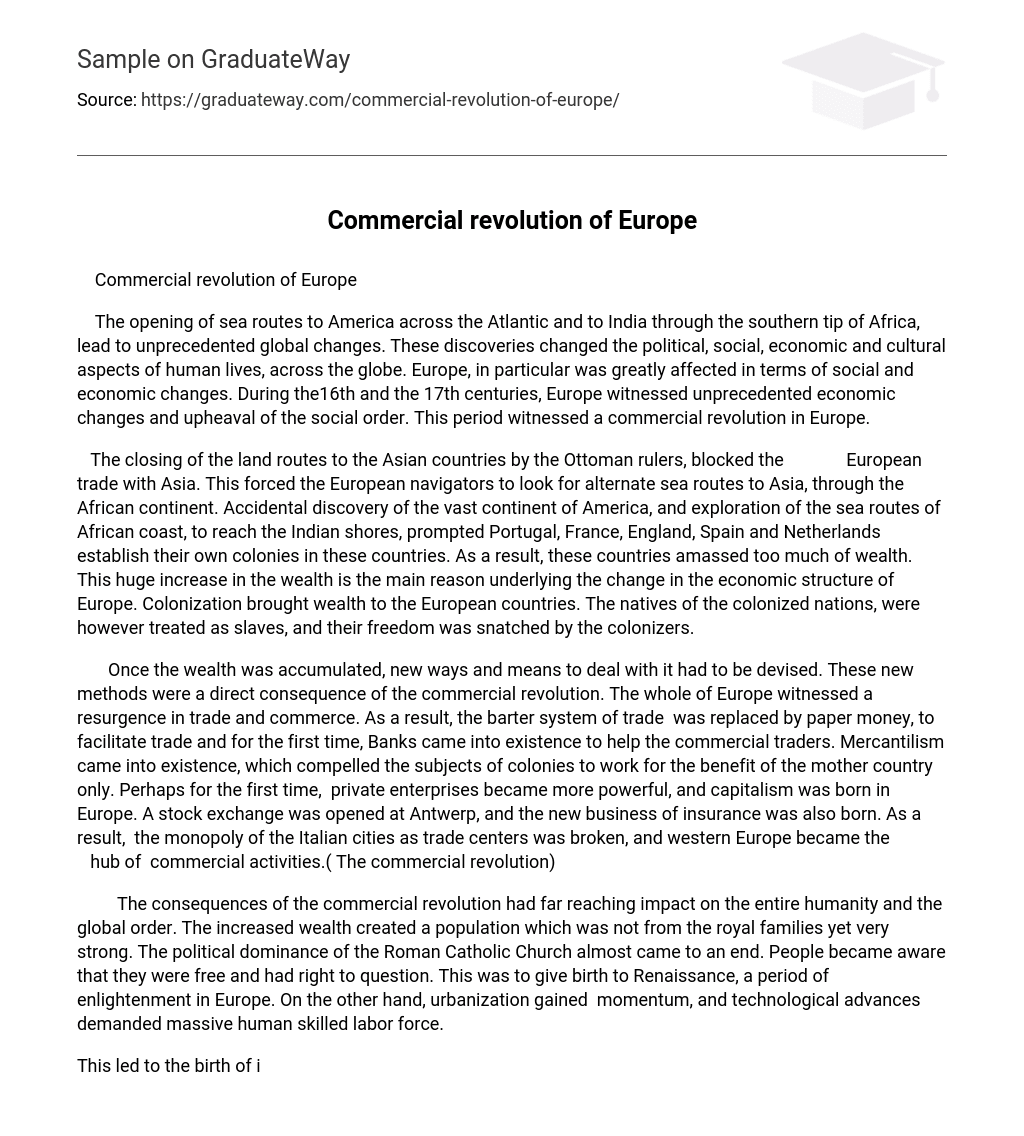The opening of sea routes to America across the Atlantic and to India through the southern tip of Africa led to unprecedented global changes. These discoveries changed the political, social, economic, and cultural aspects of human lives across the globe. Europe was particularly affected in terms of social and economic changes during the 16th and 17th centuries. This period witnessed a commercial revolution in Europe, resulting in significant upheaval of the social order.
The closure of land routes to Asian countries by Ottoman rulers blocked European trade with Asia. This forced European navigators to search for alternate sea routes through the African continent. The accidental discovery of the vast continent of America and exploration of sea routes along the African coast to reach Indian shores prompted Portugal, France, England, Spain, and the Netherlands to establish their own colonies in these countries.
As a result, these countries amassed too much wealth. This huge increase in wealth is the main reason underlying the change in the economic structure of Europe. Colonization brought wealth to European countries, but at a cost. The natives of the colonized nations were treated as slaves and their freedom was snatched by the colonizers.
Once wealth was accumulated, new ways and means had to be devised to deal with it. These methods were a direct consequence of the commercial revolution, which saw a resurgence in trade and commerce throughout Europe. As a result, the barter system was replaced by paper money to facilitate trade. For the first time, banks came into existence to help commercial traders.
Mercantilism emerged, compelling colonial subjects to work solely for the benefit of their mother country. This led to the rise of private enterprises and the birth of capitalism in Europe. The opening of a stock exchange in Antwerp and the creation of insurance as a new business further strengthened these developments. Consequently, the monopoly held by Italian cities as trade centers was shattered, and western Europe became the center of commercial activity during the commercial revolution.
The consequences of the commercial revolution had a far-reaching impact on humanity and the global order. The increased wealth created a strong population that was not from royal families. The political dominance of the Roman Catholic Church almost came to an end, and people became aware that they were free to question. This gave birth to the Renaissance, a period of enlightenment in Europe. Meanwhile, urbanization gained momentum, and technological advances demanded massive skilled labor force.
The birth of the Industrial Revolution was a result of various factors. However, on a global scale, slavery caused unprecedented havoc with native Africans. Millions of African natives had to either sacrifice their lives or were shipped off to America to work as laborers in farms.
During the High Middle Ages, Europe experienced significant urbanization. These towns stimulated the economy and provided an environment in which trade and economic reforms were possible. One example of this is the formation of the Hanseatic League. It was during this time that cities in central Europe, such as Paris, began to gain importance as commercial centers.
The growth of trade and commerce made tradesmen wealthier, enabling them to rise against traditional kings. To succumb to this pressure, emperors introduced a system allowing the people of a town to pay a fixed amount and become independent rulers of their own city-state. This led to the slow end of the feudal system, with powerful and wealthy tradesmen becoming rulers. These towns were called ‘boroughs’. (town life)
Conclusively, it can be said that the Commercial Revolution was a direct result of colonization. It had far-reaching effects on the political, social, and economic order not only in Europe but across the globe. It is also considered to be the genesis of the Renaissance and Industrial Revolution.
References
- The commercial revolution, Retrieved on 15 August 2007 from: < http://www.historyteacher.net/EuroProjects/ExamReviewSheets/CommercialRevolReview.htm >
- Middle ages, wikipedia the free encyclopedia, Retrieved on 15 August 07 from:
- Town life, Annenberg media, Retrieved on 15 August 2007 from:





